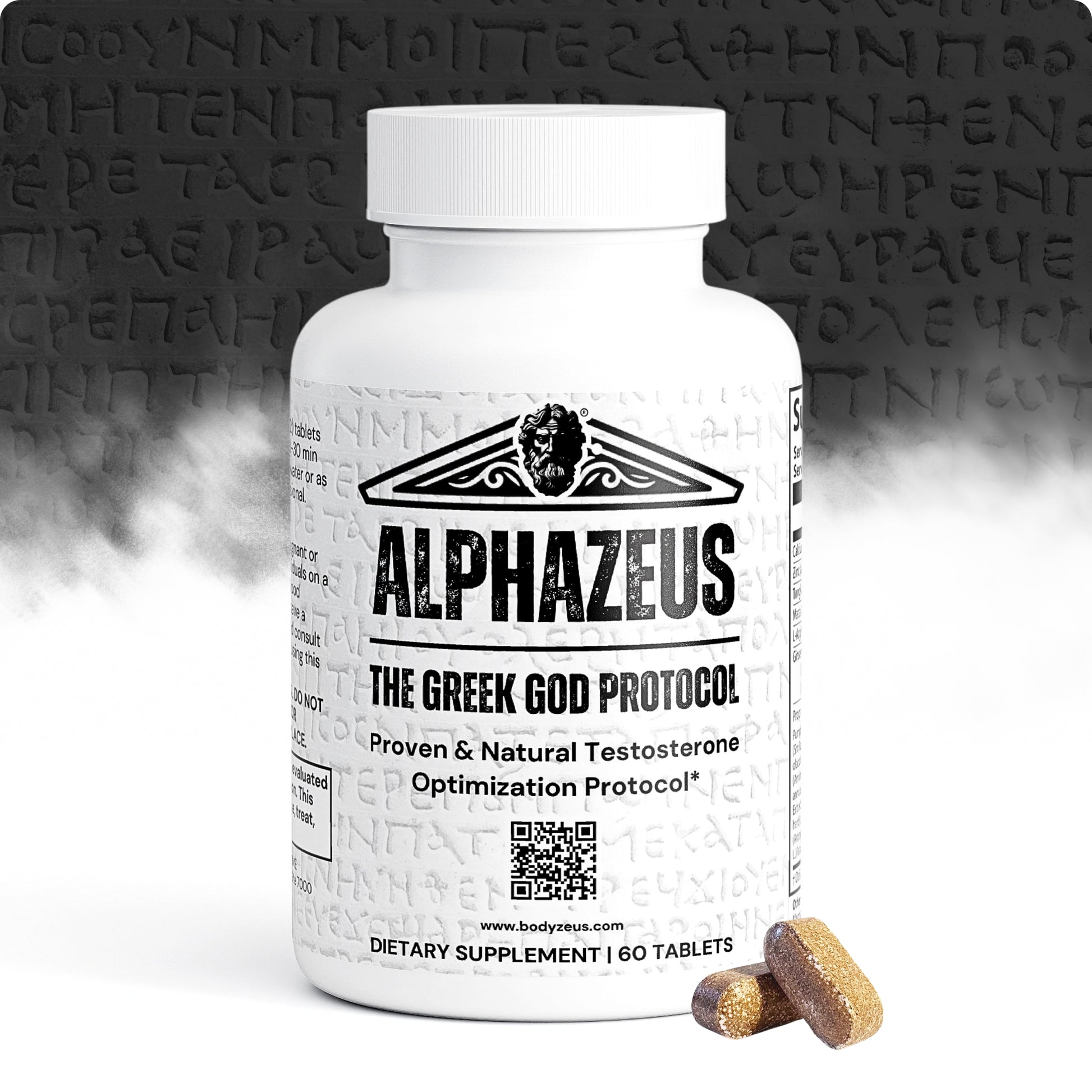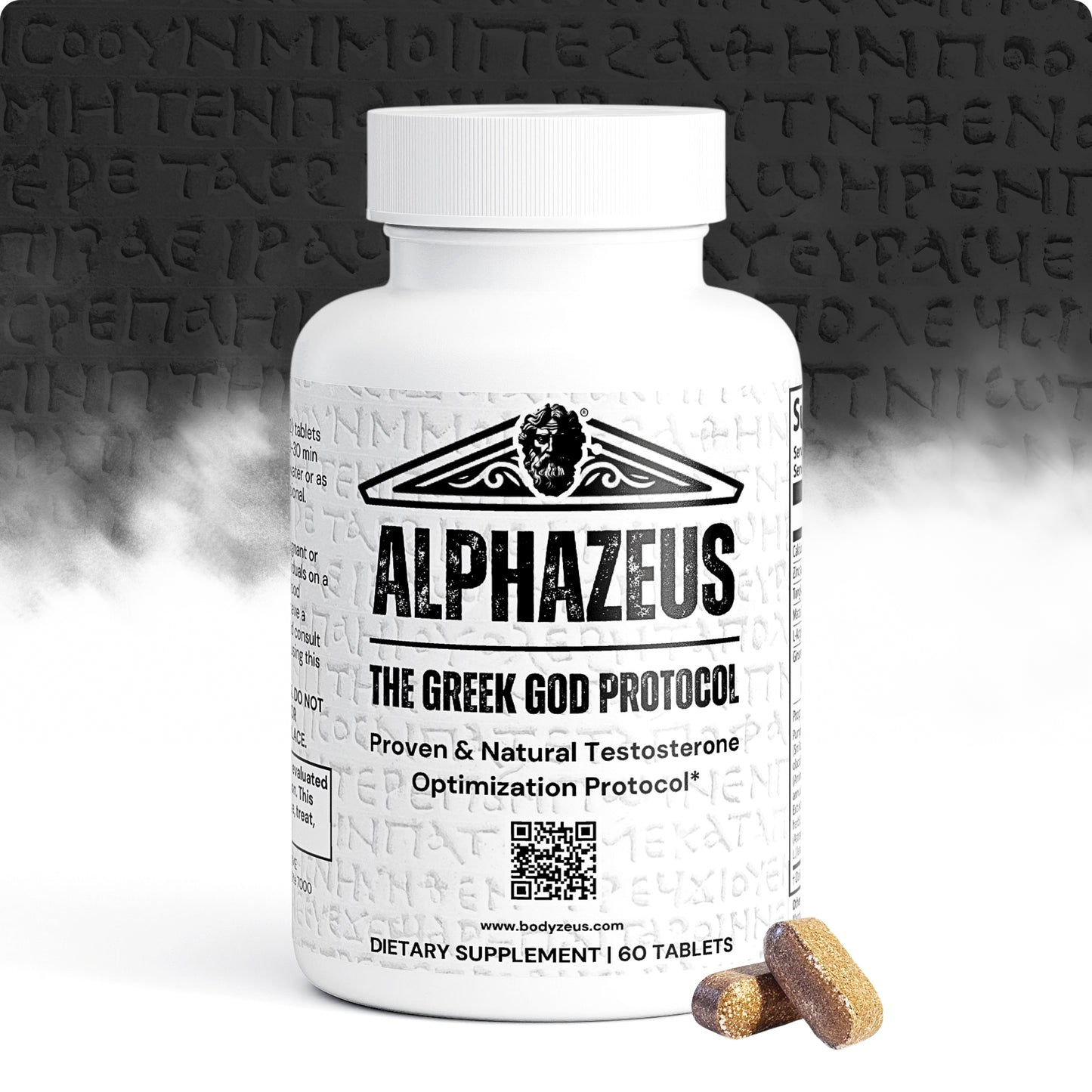Key Takeaways:
- Testosterone plays a critical role in men's health, impacting physical, mental, and sexual well-being.
- Natural methods, including diet, exercise, and lifestyle changes, can significantly influence testosterone levels.
- Understanding how to manage and naturally boost testosterone can lead to improved overall health.
Testosterone, a vital hormone in men's health, affects a range of bodily functions, from muscle growth and bone density to mood regulation and libido. Managing and naturally enhancing testosterone levels is key for overall well-being and health. This article explores effective natural strategies to optimize testosterone levels.
1. Understanding Testosterone and Its Impact on Health
- Role of Testosterone: Testosterone is the main male sex hormone, essential for the development of male reproductive tissues and secondary sexual characteristics. It also has significant implications for muscle mass, bone density, and body fat distribution.
- Symptoms of Low Testosterone: Low levels of testosterone can lead to reduced muscle mass, increased body fat, fatigue, decreased libido, and mood changes. It's important to identify and address low testosterone for overall health.
2. Dietary Strategies to Boost Testosterone
- Nutrient-Rich Foods: A diet rich in specific nutrients can support testosterone production. Foods high in zinc, such as oysters, red meat, and poultry, and vitamin D-rich foods like fatty fish and fortified milk, are beneficial.
- Healthy Fats: Incorporating healthy fats from sources like avocados, nuts, and olive oil can positively influence testosterone levels. Omega-3 fatty acids, in particular, are important for hormonal health.
- Avoiding Testosterone-Lowering Foods: Certain foods and dietary habits can negatively impact testosterone levels. Processed foods, excessive alcohol, and foods high in soy can decrease testosterone production.
3. Exercise and Testosterone Optimization
- Resistance Training: Strength training, especially high-intensity exercises, can boost testosterone levels. Exercises like squats, deadlifts, and bench presses are particularly effective.
- Aerobic Exercise: Regular aerobic exercise can also help maintain healthy testosterone levels, particularly in overweight or obese individuals.
- Balancing Exercise Intensity: While regular exercise is beneficial, over-exercising can lead to increased stress and potentially lower testosterone levels. Finding the right balance is key.
4. Stress Management for Hormonal Balance
- Cortisol and Testosterone: Chronic stress leads to elevated cortisol levels, which can negatively impact testosterone production. Managing stress is crucial for maintaining healthy testosterone levels.
- Stress Reduction Techniques: Regular practices like meditation, yoga, or even simple breathing exercises can significantly reduce stress. Engaging in hobbies and activities that you enjoy can also help lower stress levels.
5. Sleep's Role in Testosterone Production
- Importance of Quality Sleep: Adequate sleep is essential for testosterone production. Testosterone levels increase during sleep, particularly during deep sleep stages.
- Optimizing Sleep for Hormonal Health: Aim for 7-9 hours of quality sleep per night. Establishing a consistent sleep schedule and creating a restful sleeping environment are important steps to enhance sleep quality.
6. Additional Lifestyle Considerations
- Maintaining a Healthy Weight: Excess body fat, particularly abdominal fat, can negatively affect testosterone levels. A combination of diet and exercise is effective in maintaining a healthy weight.
- Limiting Alcohol and Avoiding Endocrine Disruptors: Excessive alcohol consumption can decrease testosterone levels. Additionally, certain chemicals found in plastics and personal care products can disrupt hormonal balance. It's advisable to minimize exposure to these endocrine disruptors.
7. Monitoring and Professional Guidance
- Regular Health Check-Ups: Regularly monitoring testosterone levels, especially if you experience symptoms of low testosterone, is important. This helps in understanding your hormonal health and making informed decisions.
- Consulting Healthcare Professionals: Before making significant changes to your lifestyle, diet, or starting supplements, consulting with healthcare professionals is crucial. They can provide personalized advice based on your health profile and needs.
Optimizing testosterone levels naturally involves a multifaceted approach that includes diet, exercise, stress management, adequate sleep, and overall lifestyle adjustments. It's important to remember that individual needs may vary, and what works for one person may not work for another. Regular consultation with healthcare providers can ensure that your approach to boosting testosterone is effective and safe for your specific health situation.



